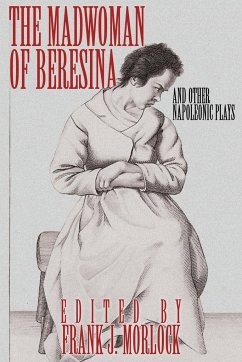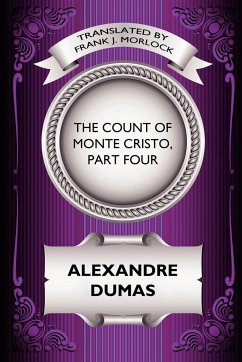
The Madwoman of Beresina and Other Napoleonic Plays
Versandkostenfrei!
Versandfertig in 1-2 Wochen
18,99 €
inkl. MwSt.

PAYBACK Punkte
9 °P sammeln!
These three plays all deal with the chaos resulting from the aftermath of the fall in 1815 of the Emperor Napoleon. THE MADWOMAN OF BERESINA, by Emmanuel Théaulon and Honoré de Balzac, is based on a short story by the latter author. Julie, Countess of Vandières, witnesses the death of her officer husband during the retreat of the French Army from Russia in 1812, at the River Beresina; although she lives to return to France, she loses her mind. Only after the war do her surviving friends attempt to restore her sanity once again. THE END OF MURAT, by Jean Berleux and Alexandre Dumas, adapted ...
These three plays all deal with the chaos resulting from the aftermath of the fall in 1815 of the Emperor Napoleon. THE MADWOMAN OF BERESINA, by Emmanuel Théaulon and Honoré de Balzac, is based on a short story by the latter author. Julie, Countess of Vandières, witnesses the death of her officer husband during the retreat of the French Army from Russia in 1812, at the River Beresina; although she lives to return to France, she loses her mind. Only after the war do her surviving friends attempt to restore her sanity once again. THE END OF MURAT, by Jean Berleux and Alexandre Dumas, adapted from an incident in a Dumas novel, deals with the fall of Joachim Murat, Napoleonic King of the Two Sicilies, in late 1815, and his trial at the instigation of the restored monarch, King Ferdinand. THE TRIAL OF MARSHAL NEY, by Louis-Marie Fontan and Charles Dupeuty, outlines the trial of one of Napoleon's chief generals and supporters, by command of the restored King Louis XVIII of France. All three dramas provide riveting glimpses into a period when Europe was trying to rediscover itself--without much success. First-rate tragedies!












